Our Woody Allen retrospective continues today with our exhaustive examination of every film the neurotic genius directed from 1990-2012. (In case you missed it, part 1 was published yesterday.)
If these past 22 years have taught us anything, it’s that the moment we count Woody out — as I’m sure many of us did during these tumultuous times — he comes back and surprises us. The nebbish storyteller continues to disprove those who deem him washed up and past his prime.
It’s clear Allen has more to tell us through the art of film. All we have to do is listen.
‘Alice’ (1990)
Grade: B-
The nineties were arguably the most mercurial and daring period for Woody Allen, and a strange time for American filmmaking in general. It’s fitting, then, that he kicks off the decade with this affectionate, magical adult bedtime story about a spoiled housewife (Mia Farrow) whose visit to a Chinese healer rockets her down a rabbit hole of self-reflection and discovery, with tumultuous consequences.
Unabashedly using Lewis Carroll’s “Alice in Wonderland” and Fellini’s Juliet of the Spirits as inspiration, Allen’s version is ultimately a valentine to Farrow. She gets a grand showcase for her talent and further proves the argument that she’s his most invaluable leading lady. Even his least-acknowledged films are worth visiting for the unprecedented roles he allows his actors to play. Alec Baldwin appears in both of Allen’s most recent films, for example, but he first joined the filmmaker’s universe here in a poignant turn as the ghost of Farrow’s first love. Side note: Alice is currently the only instance of collaboration between Allen and virtuoso goddess Bernadette Peters, which remains to this day one of cinema’s biggest gyps. – Knight
‘Shadows and Fog’ (1991)
Grade: A
“I’m performing an unusual amount of autopsies these days,” says a stone-faced Donald Pleasance as the town doctor, before pouring himself a stiff drink in this thrilling homage to German expressionism. Based on Allen’s one-act play “Death” from his literary volume “Without Feathers,” Shadows and Fog is visually unlike any film he’s made. Woody plays Kleinman, a nobody awakened from a deep sleep by a vigilante mob on the heels of a maniac who’s been strangling townsfolk at random. Kleinman tiptoes through the misty streets, encountering circus performers (John Malkovich, Mia Farrow, Madonna) and prostitutes (Kathy Bates, Jodie Foster, Lily Tomlin) pontificating about death, madness and pleasure.
The unnamed town in the film is Woody’s most attractively realized dream world. It’s as if the director and crew snuck back in time to shoot on F.W. Murnau or Fritz Lang’s old soundstages. Not a single shot is wasted by Carlo Di Palma’s exquisite black-and-white cinematography in this world of perpetual night and the figures that lurk within. What squashes the threat of Allen’s more overt homages ever feeling like cheap knockoffs of other filmmakers’ work is his primary function as guide. The worlds, time periods and film genres may change, but Allen the Character virtually stays the same, cracking jokes in the stern, scowling face of the most dire situations. – Knight
‘Husbands and Wives’ (1992)
Grade: A
Released concurrently with massive upheavals in Allen’s life, for a long time this was widely considered his last truly great film. It’s a drama about what happens to relationships that have long progressed past swooning and have entered a period of stagnation. Allen, Mia Farrow, Sydney Pollack, and Judy Davis play two couples who try to strike out on their own romantically after breaking off their long-standing marriages. It’s the midlife crisis crystallized in cinematic form. It’s hard to separate this film, in which Allen’s character takes up with a much younger woman, from his private life. But once you do, you see how brilliant it is. – Schindel
‘Manhattan Murder Mystery’ (1993)
Grade: B
Allen had wanted to do a murder mystery for decades (in fact, Annie Hall began as such), but held off on the idea, considering it too lightweight. After his turmoil in the early 90’s, though, lighter fare seemed like a relief, so he went ahead with this project. Allen and Diane Keaton, re-teamed onscreen after more than a decade apart, play a married couple who fumble their way through an investigation into the mysterious death of a new neighbor whose husband is acting awfully suspicious. Manhattan Murder Mystery is airy, but it’s a load of fun, and a legitimately engaging mystery to boot. – Schindel
‘Bullets Over Broadway’ (1994)
Grade: A
The sort of behind-the-scenes film it seems Woody Allen was born to make, Bullets Over Broadway is perhaps the last truly “funny” film in the director’s extensive catalogue. Bullets follows the shenanigans of David Shayne (John Cusack), an aspiring young playwright who bends to a financier’s casting wishes by hiring Olive Neal (Jennifer Tilly), a mobster’s wife and parodically bad actress. Shayne’s situation is made more complicated when he begins an affair with his leading lady, thespian diva Helen Sinclair (Dianne Wiest).
From the tone to the acting, everything in this backstage romp is delivered with pitch-perfect wit and charm. Wiest’s performance will undoubtedly be remembered as one of the all-time best in one of Allen’s films (Don’t Speak!), as she brings the house down with the scintillating role that won her a second Oscar (the first in Allen’s Hannah and Her Sisters). It’s a bit of a shame that it nearly overshadows Tilly’s delightful ditz, another Oscar nominated performance that likely would have won were it not pitted against another bravura performance from the same film. – Oursler
‘Mighty Aphrodite’ (1995)
Grade: B
There’s nothing more gloriously serendipitous than the marriage of a great role with the perfect actor to play the part, and that’s the case with Mira Sorvino in Mighty Aphrodite, Allen’s uneven mid-90s comedy. Awkwardly realized through a too-literal Greek Chorus framing device, Aphrodite tells the story of Lenny (Allen), a sportswriter who, along with his wife Amanda (Helena Bonham Carter), is the newly adoptive parent of a baby boy named Max. In his manic search to find the baby’s biological mother, Lenny finds that the woman responsible for his new bundle of joy, Linda (Sorvino), is a hooker/porn star. Relationship hijinks ensue.
While the film itself is a bit flimsy, Aphrodite is worth watching just for Sorvino’s magnetic performance, in which she takes a hackneyed hooker-with-a-heart-of-gold character and injects it with enough humanity to transform the role into something truly special. It’s one of those rare instances where a director saw something in an actor and gave them the ability to shine. Unfortunately, Sorvino isn’t often given the chance to show off her impeccable comedic timing (other than Romy and Michelle’s High School Reunion, where she’s pretty amazing. Still, she’ll always have Aphrodite and her Oscar. – Oursler
‘Everyone Says I Love You’ (1996)
Grade: D
Allen’s first and only foray into the art of the musical is a colossal misstep. A joyless, congested stumble in which nearly every actor looks miserable while trudging through haphazardly choreographed song-and-dance numbers. The intent is noble enough, casting actors not traditionally known for musicals (Drew Barrymore’s voice was apparently too poor, as she was later overdubbed), but the abundance of unseasoned vocals isn’t the film’s most grating aspect. There are far too many plot lines and characters that could easily be excised, and Edward Norton’s decision to not only impersonate Woody Allen, but to do so in a film that also stars Woody Allen, is especially embarrassing.
The choice to cast amateur singers saddles many of the film’s extemporaneous outbursts with a forgivable sincerity, even while every song is a goopy, marble-mouthed first draft. The scenes between Allen and Natasha Lyonne as father and daughter who hatch a scheme to stalk and win over the object of the former’s affection (Julia Roberts) belong in a better movie, even if that plot thread does come off a little scuzzy. Save for one truly exquisite dance number involving Goldie Hawn and some elegant wirework, and the interplay between young Natalie Portman, Gaby Hoffman and Lukas Haas as siblings, this is rare disposable Woody Allen. – Knight
‘Deconstructing Harry’ (1997)
Grade: B
If Deconstructing Harry has any primary faults it’s that it fits so seamlessly into Allen’s filmography that it borders on being forgettable. In fact, a quick revisit reminded me that it’s actually quite good, especially considering what came in the decade that followed. Sometimes films suffer, as people do, from bad timing and an inability to demand recognition.
With Deconstructing Harry, the consistency of Allen’s onscreen persona and thematic interests crystallize into something satisfying but not at all surprising. He may have thought the same, as the next, least successful part of his career saw him play around with genre and casting more than before, to muted degrees of interest from fans and critics. Judy Davis gives a typically dynamite performance as Allen’s ex-wife, and the film even boasts what is likely the best insult in any Woody Allen film, as his protagonist calls his histrionic, suicidal ex a “meshugganah cunt.” That alone would be worth the price of admission. – Oursler
‘Celebrity’ (1998)
Grade: C+
It’s tough to think of a more alienating film in Allen’s repertoire than Celebrity. With so much to admire, it’s nearly impossible to enjoy. Echoing the loose-strand structure of Radio Days, this much more vulgar glimpse into the dark soul of fame and fortune follows the separate paths embarked upon by a failed novelist (Kenneth Branagh) and his mousy ex-wife (Judy Davis) in the wake of their divorce. He turns to gossip journalism; she to a full social makeover. This allows the stark black-and-white frame (composed by longtime Ingmar Bergman collaborator Sven Nykvist) to be filled with legions of famous faces throughout including Leonardo DiCaprio, Winona Ryder, Melanie Griffith and Charlize Theron.
Branagh infamously made the unfortunate choice to play his character as an imitation of Woody Allen the Character, adopting his neurotic mannerisms, body language and stammer. Branagh’s impersonation is spot-on, but presence galling. The few scenes without him are a well needed respite. There’s a whole riot of a film to be made out of the two-and-a-half minute scene in which a prostitute (Bebe Neuwirth) coaches Davis’s demure housewife how to give a proper blowjob. Remove Branagh’s calculated nebbish nonsense, and what remains is a virulent commentary on the film’s titular culture, and a smattering of scenes that stand up well enough on their own. – Knight
‘Sweet and Lowdown’ (1999)
Grade: A-
Sean Penn doesn’t get enough credit as a comic actor. While Jeff Spicoli may be his most memorable comedic creation, Emmet Ray, the self-proclaimed “second greatest guitarist in the world”, is perhaps his most fully realized. But Sweet and Lowdown, an account of the fictional 1930s musician, was never going to catch on the way Fast Times at Ridgemont High did. Implementing the talking-head format of Take the Money and Run, Allen (playing himself) and others vocalize their remembrances and adulation for Ray in a manner that wills the made-up character into real-life history. It’s a story one could easily believe happened under our noses, tracing Ray’s boozy, gun-toting proclivities and crippling stage fright to his achingly endearing romance with a mute (Samantha Morton in an Oscar-nominated, entirely wordless performance). It’s easily one of Woody’s best, most charming films, and an inspired tribute to an era and its music he clearly adores. – Knight
‘Small Time Crooks’ (2000)
Grade: B-
Like many of Allen’s films during this period, Small Time Crooks is charming, occasionally quite funny, and completely forgettable. It starts off as a heist comedy but then becomes a class satire, with Allen playing a working-class criminal who longs for wealth but distrusts the bourgeois culture that comes with it. It’s slight but sweet, proof that even Allen’s minor work is better than a lot of what you’ll find at the multiplex, and it may leave you craving for cookies along with more of his signature wit. – Johnson
‘The Curse of the Jade Scorpion’ (2001)
Grade: C+
Woody’s perennial punching bag, the much maligned hypnosis comedy is mockable on title alone, but the film now represents a marker in a filmography rife with sea changes, downshifts and resuscitations. Perhaps the most glaring problem with The Curse of the Jade Scorpion is that it stretches Woody the Actor’s believability as romantic lead to its breaking point. Casting Helen Hunt as the flipside to his love coin doesn’t help, as the two together make about as much sense as the eye-roll of a needlessly convoluted plot. Set in 1940, Woody’s insurance investigator and Hunt’s dame come together when both are hypnotized into becoming jewel thieves. The film itself is a smidgen too harmless to garner such ire, and even earns B-movie cred with a featured turn from post-Showgirls Elizabeth Berkeley. But Allen’s reputation doesn’t typically honor this kind of next-level, laugh-at-instead-of-with enjoyment. Which is a shame, because it’s unlikely that a diversion so jaw-droppingly and enjoyably preposterous as The Curse of the Jade Scorpion will ever come again from such an honored cinematic icon. – Knight
‘Hollywood Ending’ (2002)
Grade: B-
This is definitely one of Allen’s more high-concept endeavors—a filmmaker struggles to direct a movie while suffering from psychosomatic blindness—and while it doesn’t pack either the emotional or comedic punch of his best work, it contains its fair share of inspired moments. Allen, now in his mid-60s, demonstrates he still has the energy for slapstick; one bit involving a restaurant meeting finds him switching effortlessly between calm professional and outraged ex-husband, and it’s like he hasn’t aged at all. At times Hollywood Ending feels like it could use some tighter editing, but overall it’s an enjoyable if inconsequential Hollywood satire. – Johnson
‘Anything Else’ (2003)
Grade: D-
Allen’s worst film in which he appears (though To Rome With Love comes close) begins on the wrong foot, with Woody’s character Dobel imparting to his mentee Jerry (Jason Biggs) a joke that appeared verbatim 14 years earlier in Woody’s masterpiece Crimes and Misdemeanors, and just trundles downhill from there. It’s a rotten, spiteful, punishing romantic comedy in which nearly everyone looks catatonic with boredom. Thankfully, Biggs isn’t a skilled enough actor to adequately emulate Allen’s neurotic persona the way so many curiously did in the back half of the filmmaker’s career, which keeps the film from being even more interminable. The film’s only saving grace is Christina Ricci’s cruel Amanda, whose most memorable moment comes after Jerry off-handedly declares he’s going to kill himself, to which she shoots back, “Oh, don’t be so middle-class.” Her expert stint here is one of the few lost causes in Woody’s catalog: a combustible must-see performance in an otherwise worthless mishap. – Knight
‘Melinda and Melinda’ (2004)
Grade: C
Melinda and Melinda is one of those films that never quite lives up to the potential of its premise. It’s an exploration of life as comedy or tragedy that switches back-and-forth between the two, with Radha Mitchell’s Melinda serving as the connective tissue between them. Neither is serious or funny enough to be memorable; both feel half-developed. Will Ferrell does his best as the Allen stand-in—his performance is the best thing about the movie—but unfortunately the structure prevents him from fully anchoring the proceedings. – Johnson
‘Match Point’ (2005)
Grade: A-
This is one of Allen’s better offerings post-2000, and the first that finds him filming entirely in Britain. It’s one of his darkest movies, with a protagonist that’s far more selfish and conniving than those in the majority of his work. It feels a bit familiar, combining elements from several other films—particularly Crimes and Misdemeanors—but it’s also incredibly assured and one of the most exquisitely shot entries in his oeuvre. Not to mention the early love scenes with Scarlett Johansson, which may be the most erotic of any Allen film. – Johnson
‘Scoop’ (2006)
Grade: D
It’s difficult to comprehend that the same man who helmed Match Point the year prior would follow up his modern masterpiece with Scoop — one of Allen’s more lifeless films to date. To quote one of Woody’s earlier, funny movies, Scoop is truly “a travesty of a mockery of a sham of a mockery of a travesty of two mockeries of a sham.” Shot in Britain, this wafer-thin drama about an American journalism student (Scarlett Johansson) who falls for the potential murderer she’s supposed to be reporting on is as forgettable as they come. – Fragoso
‘Cassandra’s Dream’ (2007)
Grade: B-
Coming just two years after the critically hailed Match Point, Allen would return with Cassandra’s Dream aka Match Point Jr., a Shakespearean morality play set in London about two brothers (Colin Farrell and Ewan McGregor) facing extreme financial woes. While Allen’s drama does not contain the same weighty class commentary and sense of a directorial revival that Match Point provided, Cassandra’s Dream barely gets by via its swift pacing and rooted nerviness. The setup and drama are routine on paper, but Cassandra’s Dream gets a pass for its taut commentary on family, fate, and the ways in which murder can sneak up on the most normal of lives. While the film’s foreshadowing is a bit much, Farrell and McGregor make this flawed entry in the Allen oeuvre extremely watchable. – Landis
‘Vicky Cristina Barcelona’ (2008)
Grade: B
This is the fourth consecutive film Allen shot mostly outside the United States, and it feels like nothing else he’s ever made. It lacks many of the things normally associated with his work—New York, a nebbish lead, a tidy resolution—and even the web of romantic entanglements feels more like something out of a telenovela than a typical drama. The scenery is lush, the characters are compelling, and the performances (especially Cruz, who won an Oscar) are intoxicating. Its ending is a bit too nebulous to be fully satisfying, but overall Vicky Cristina Barcelona is a sign that Allen is a filmmaker still capable of trying new things and (mostly) succeeding. – Johnson
‘Whatever Works’ (2009)
Grade: D-
This dud of a film casts Larry David as a life long New York resident who – in the midst of an existential crisis – gets a divorce from his longstanding wife, quits his job as a college professor at Columbia, and begrudgingly houses a naive, Mississippi runaway named Melodie (played by Evan Rachel Wood). Now with too much free time on his hands Boris (David) wallows around the city didacticly ranting about the worthlessness of existence and a myriad of other cynical, pseudo-intellectual topics. In theory the collaboration of David and Allen sounds like a match made in heaven. Unfortunately absolutely nothing works in Whatever Works. – Fragoso
‘You Will Meet a Tall Dark Stranger’ (2010)
Grade: C
After enduring Whatever Works the year prior, just about anything Allen put on the screen would’ve been an improvement. Continuing his odyssey abroad, once again filming in London, You Will Meet a Tall Dark Stranger is yet another ensemble piece with too many characters and too little substance. Stories of infidelity and theft are enervating here — recycling half-baked plot lines executed better in Allen’s earlier work. Although everyone on screen is mostly amusing, from Josh Brolin to Naomi Watts to Antonio Banderas, You Will Meet a Tall Dark Stranger commits the cardinal sin of being relentlessly mediocre. – Fragoso
‘Midnight In Paris’ (2010)
Grade: B+
Midnight In Paris delightfully reminds us that Woody Allen still has the capacity to create a fresh, original film with some vitality to it. A literary fever dream, Gil Pender is an American writer visiting Paris who – every night at midnight – finds himself mysteriously (and inexplicably) propelled back into the roaring 1920s. There Gil meets and receives advice from artistic legends like F. Scott Fitzgerald, Earnest Hemingway, Gertrude Stein, Salvador Dalí and more. Gorgeously photographed and hopelessly romantic, Midnight In Paris effectively captures the lure of nostalgia, while also reminding us that by perpetually living in the past one is avoiding the present. – Fragoso
‘To Rome with Love’
Grade: C
This one’s as shiny as a sunbeam in a plaza, and equally weightless. It’s essentially four short films, unrelated save their common setting in Rome, edited together. It feels like Allen dug into his idea drawer for things he couldn’t stretch to feature-length and tossed them all into a screenplay together. None of these stories are great, though all are at least mildly amusing. As a whole, it’s inoffensive, the end result of everyone involved going through all the proper motions. But coming after what many saw as a return to form for Allen with Midnight in Paris, this feels like a disappointment. Really, the most interesting thing about To Rome with Love is its original, better title: Bop Decameron.– Schindel
...
Thank you for reading this exhaustive retrospective. Our review of Blue Jasmine will be published later today. For now, share your thoughts on the transcendent career of Woody Allen.

















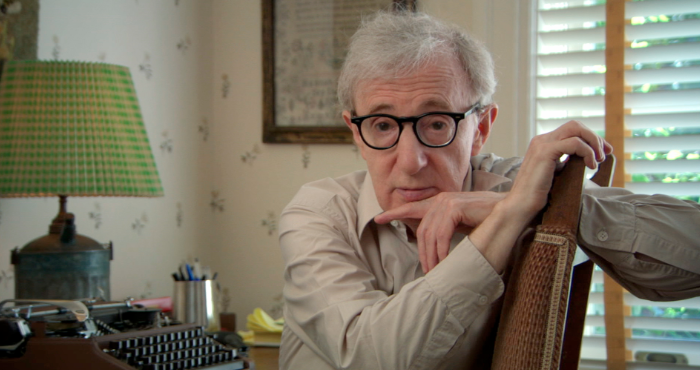
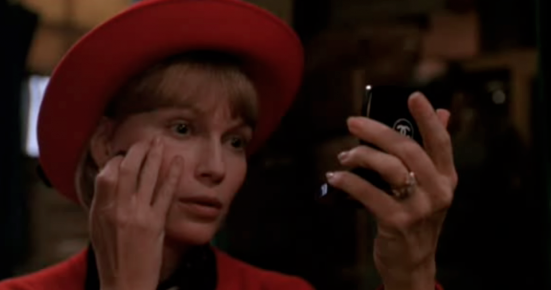
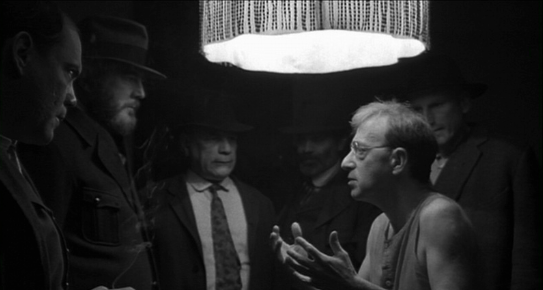
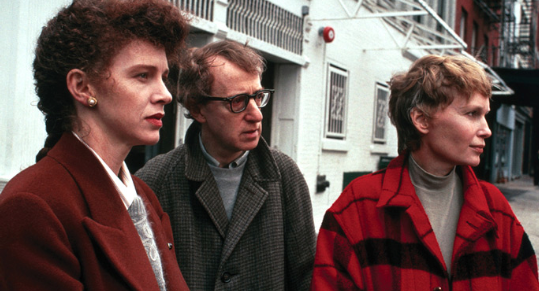
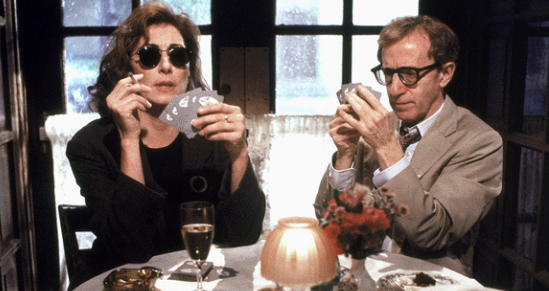
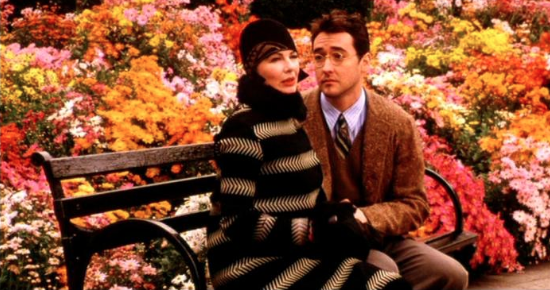
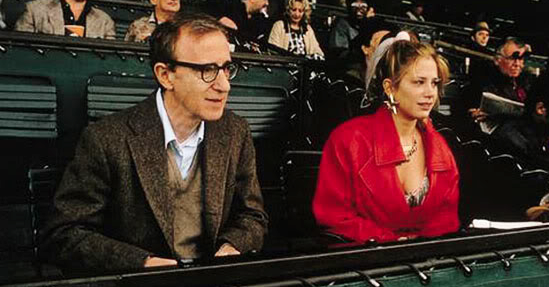
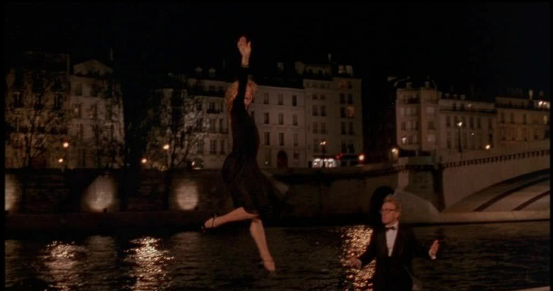
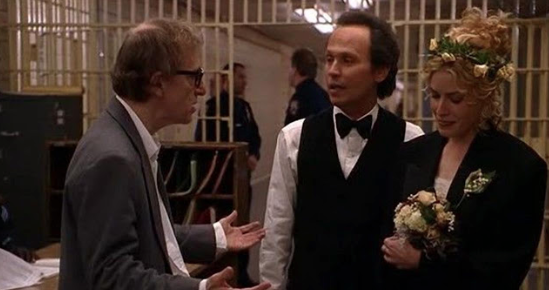
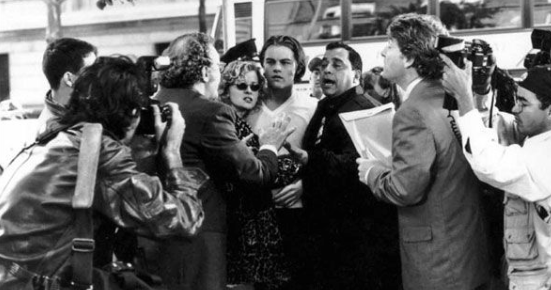
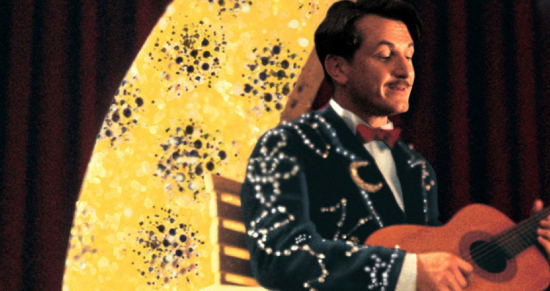
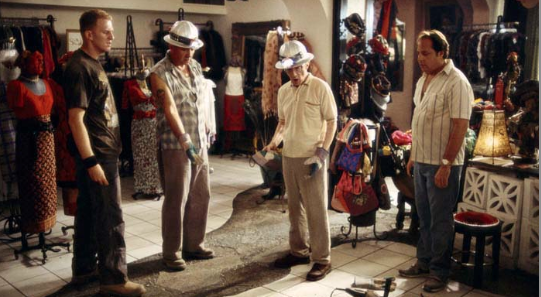
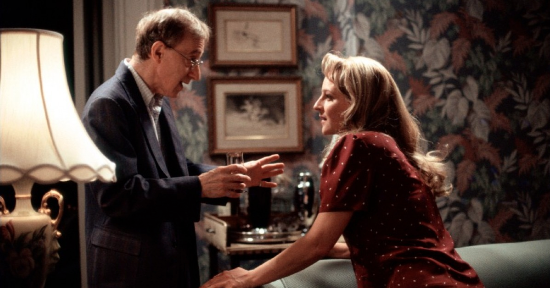
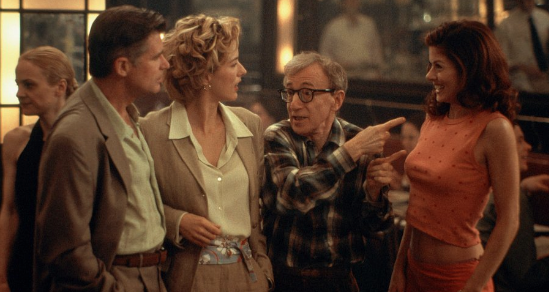
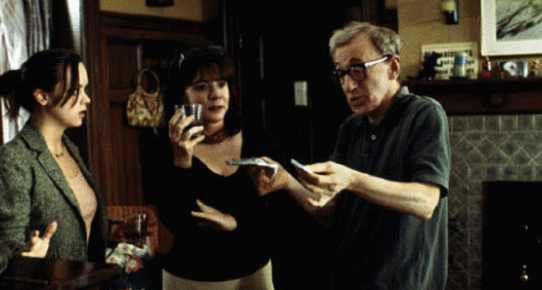
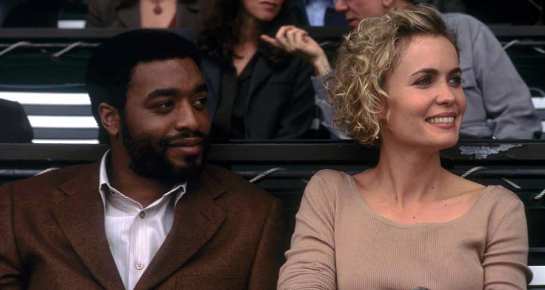
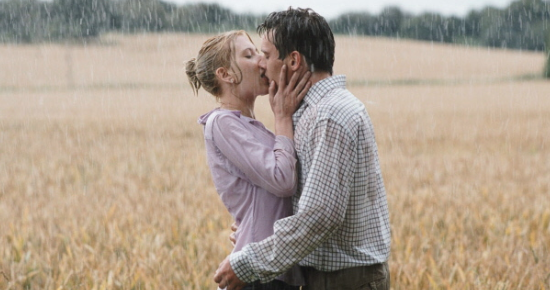
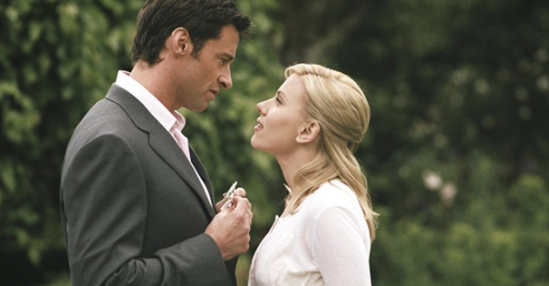
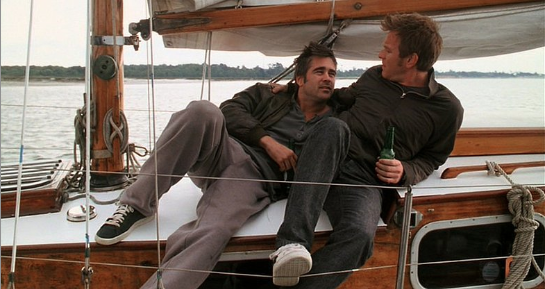

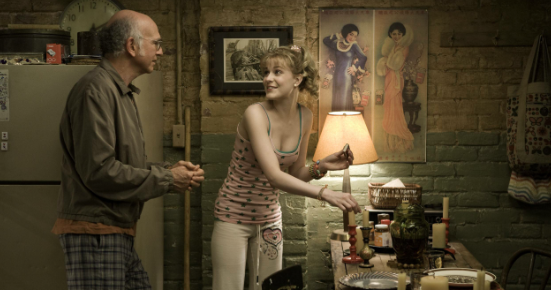
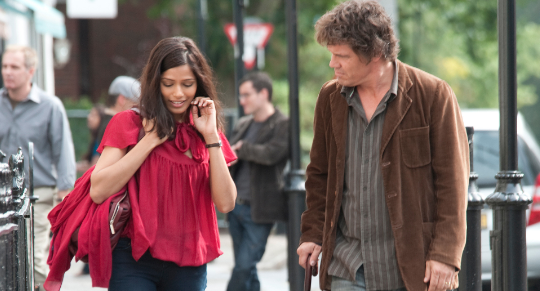
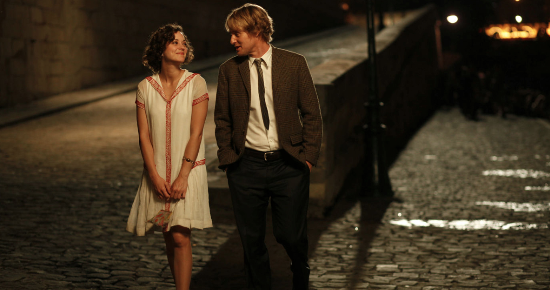
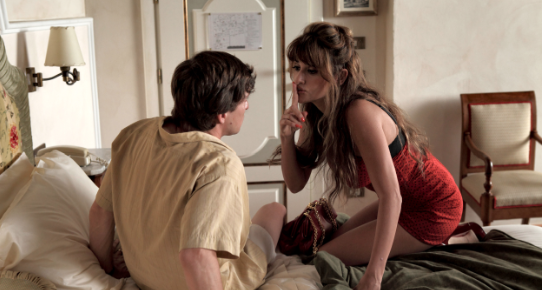
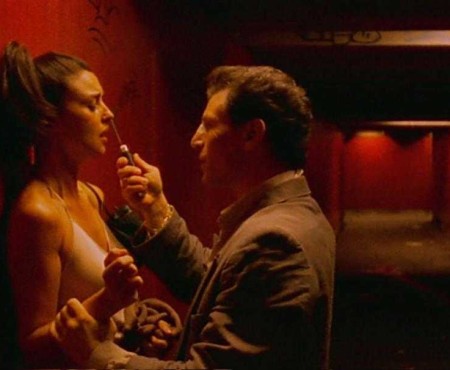
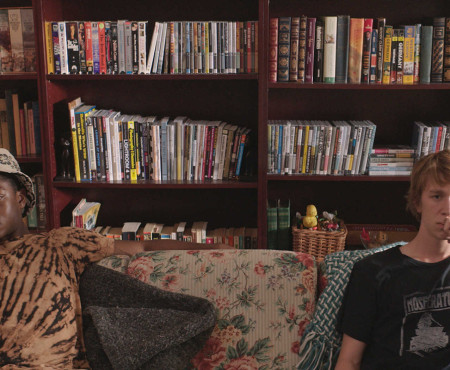
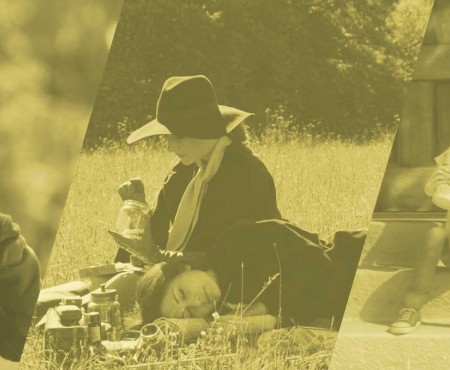
One thought on “The Woody Allen Retrospective: Part 2”
Pingback: Everybody’s Talkin’ 7 – 26 (Chatter from Other Bloggers) | The Matinee | Cinematic Passion & Perspective